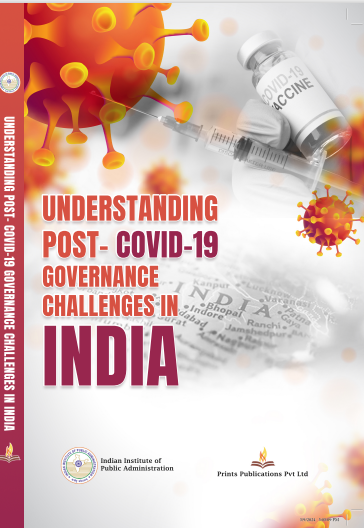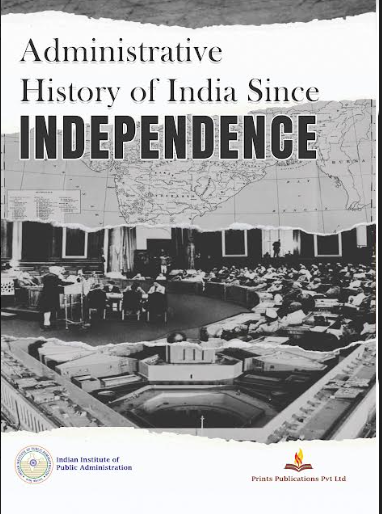C K Mathew
Dr. C K Mathew is an IAS officer of the 1977 batch from the Rajasthan cadre and was chief Secretary of the State before retirement. He has served as District Collector in two districts and was secretary to the government in various departments such as Irrigation, Energy, Mines, Education, Information Technology and Finance, besides serving as Secretary to the Chief Minister for five years. After retirement he has worked as Senior Fellow in the Public Affairs Centre at Bangalore and was also Special Rapporteur in the National Human Rights Commission for the southern states. Currently he is Visiting Professor in the Azim Premji University. Dr Mathew holds a Ph D in English literature and is the principal author of three annual reports called the Public Affairs Index on the quality of governance in the states of India. He has also compiled and edited a series of essays by retired Chief Secretaries titled In The Rear-View Mirror. He is an avid blogger and author of three novels.
Aditi Mehta (Contributor)
Aditi Mehta did her undergraduate education from Delhi University’s Miranda House in Economics Honours and went on to Smith College, Northampton, MA. to complete a second BA degree. She returned to Delhi to do her MA in economics from the Delhi School of Economics in 1977, and after a brief foray in journalism with the Times of India, joined the Indian Administrative Service in 1979.
Aditi’s most distinctive career highlight is the long period spent in the field, from the inception of the career, as a Sub-Divisional officer, to the period of when she was Secretary, Health and Family Welfare, in Rajasthan. This has given her a rich perspective grounded in field realities. Her main professional interests have converged on issues of the social sector, including health and education, but specially issues of social justice and the empowerment of marginalised peoples, the de-notified and nomadic tribes and issues with respect of the self expression of Dalit, tribal and other marginalised groups. After super-annuation from the IAS in 2013, Aditi has been involved in NGOs that deal with the issues of her particular interest. She is currently completing a documentation and analysis of the Gavri, a votive dance form of the Bhil tribals of southern Rajasthan.
Aditi lives between New Delhi and Udaipur, Rajasthan and has three daughters and three grandchildren.
Champaka Rajagopal (Contributor)
Champaka Rajagopal is an independent practitioner and researcher in urban policy, planning and governance. She brings over twenty years of experience of having worked with national, state and local governments in India and abroad. She is faculty at the School of Public Policy & Governance, Azim Premji University, where she is Coordinator, the Hub for Law and Policy. Prior to joining Azim Premji University, she was Head, Urban Development at Egis India Consulting Engineers Pvt. Ltd., During this time she co-led and worked on several large scale public sector projects including the Development Plan for Greater Mumbai 2034, with the Municipal Corporation of Greater Mumbai and the Revised Master Plan for Bengaluru 2015, with the Bangalore Development Authority. Champaka holds a doctoral degree in Planning and International Development Studies from the University of Amsterdam, a Masters’ Degree in Urban Design from University of California at Berkeley, USA and an undergraduate degree in Architecture from Centre for Environmental Planning & Technology, Ahmedabad, India. Champaka is a recipient of Oxford University’s PhD Grant in Global Challenges in Transport Studies. She trained at the Haas Business School at UC Berkeley on Leadership Skills for Women Executives in 2015.
Gopalan Balagopal (Contributor)
Gopalan Balagopal had his education in Kerala and Delhi and started his career as an Executive Trainee with Fertilizers & Chemicals Travancore (FACT) a Central Public Sector undertaking in Kerala in 1969. After working there for five years he was selected to join the Indian Administrative Service in 1974. He served in West Bengal as Collector of two districts and the Ministry of Information & Broadcasting of the Government of India. His services were loaned to the United Nations Children’s Fund in January 1994 and he worked with UNICEF as Chief of Child Protection in Bangladesh; as a Senior Adviser, Child Protection at UNI�CEF Headquarters in New York and as UNICEF Representative in North Korea. After his retirement from UNICEF at the end of 2009, Mr. Balagopal has been extensively consulting in Africa for the Economic Commission of Africa and partners in strengthening government systems for Civil Registration and Vital Statistics at the continental level and by helping several African countries on the ground.
K Narayanan Unni (Contributor)
Born in Thodupuzha, Kerala in 1955. Obtained Bachelors degree in Mathematics and Master’s degree in Statistics from University of Kerala. Joined Indian Statistical Service in 1979. Worked as Deputy Registrar General (Civil Registration) in the Office of the Registrar General, India during 2001-06. Also worked with the Ministries of Agriculture and Statistics & Proramme Implementation. Also worked as Technical Adviser with UNFPA for Inter Censal Population Survey 2012 in Ethiopia. Was engaged in consultancy projects relating to Civil Registration and Vital Statistics with the United Nations Economic Commission for Africa, Unicef (Zimbabwe) and Unicef India. Was a member of the team that prepared a report on strengthening Civil registration and Vital Statistics (CRVS) with the support of support by Unicef, India. Was a member of the Technical Advisory Committee for 2011 and 2021 censuses.
Dr. Manju Menon (Contributor)
Dr. Manju Menon is Senior Fellow at the Centre for Policy Research, New Delhi. Her main areas of work are resource politics, environmental law and regulatory decision-making. She has published popular articles and papers on environment, law and development for over two decades.
Ms. Kanchi Kohli (Contributor)
Ms. Kanchi Kohli is Senior Researcher at the Centre for Policy Research, New Delhi. She works on environment, forest and biodiversity governance in India. Her research explores the links between law, industrialization and environment justice. She has authored various publications, research papers and popular articles.
Krishna Mohan (Contributor)
More than thirty seven years of rich experience in all aspects and crucial sectors of public administration as an officer of the Indian Administrative Service (Haryana Cadre – 1977 Batch) with multiple core competencies in a complete range of sectors and departments through several key appointments in the State of Haryana and the Union Territory of Chandigarh as Head of the Department, Managing Director and Administrative Secretary (1977 to 2013). His last posting was Addl. Chief Secretary, Revenue & Disaster Management, in the rank and scale of Chief Secretary. After this he was further re-employed as Advisor to the Chief Minister, a post which he held till October 2014. Some of the most challenging assignments were Home Secretary, Chandigarh Administration (2004 to 2008) & Deputy Commissioner-cum-Estate Officer, Chandigarh Administration (1986 to 1991). While serving for almost 9 years in these two assignments he carried out pioneering development works in the city of Chandigarh. Additional prominent positions which he occupied were MD Hafed, Excise & Taxation Commissioner, Registrar Cooperative Societies, Director Agriculture, Health Secretary, Home Secretary, Agriculture Secretary, Cooperation Secretary,Transport Secretary & Forest Secretary in the Govt. of Haryana.
Shreelata Rao Seshadri (Contributor)
Shreelata Rao Seshadri is Professor, Ramalingaswami Centre for Equity and Social Determinants of Health, Public Health Foundation of India. She has been involved in research, practice and teaching in the field of public health for almost three decades. She has had a range of professional engagements, including with multilateral agencies, global research initiatives and grassroots NGOs. Her research interests include health systems policy and governance, public health nutrition and mental health, with a special interest in program implementation and evaluation. Shreelata has published widely on a variety of public health issues, including nutritional challenges faced by primary school children, traditional food systems and their transformation, and governance issues associated with access to health and nutrition services in both urban and rural settings. Shreelata has served on several government committees and as well as President of the Indian Health Economics and Policy Association and on the Board of the Center for Budgeting and Policy Studies.
Joy Oommen (Contributor)
P Joy Oommen is a former Chief Secretary of the Government of Chhattisgarh. He was a member of the 1977 batch of Indian Administrative Service. He also served as the founder Chairman of Naya Raipur Development Authority which planned and developed the new Capital City of Chhattisgarh. Other positions he held include: Chairman of Chhattisgarh Electricity Board, Additional Chief Secretary, Chhattisgarh, CEO and Member Secretary, Central Silk Board, Bangalore, Managing Director of Madhya Pradesh Textile Corporation, Secretary to Governor of Madhya Pradesh, Secretary Finance, Madhya Pradesh, Joint Chief Controller of Imports and Exports Chennai and Collector and District Magistrate of Dewas District, Madhya Pradesh. After his retirement he also served Government of Kerala as Chairman and Managing Director of Kerala Financial Corporation. Currently he is Adjunct Professor in Economics with Xavier Institute of Management and Entrepreneurship, Bengaluru.














